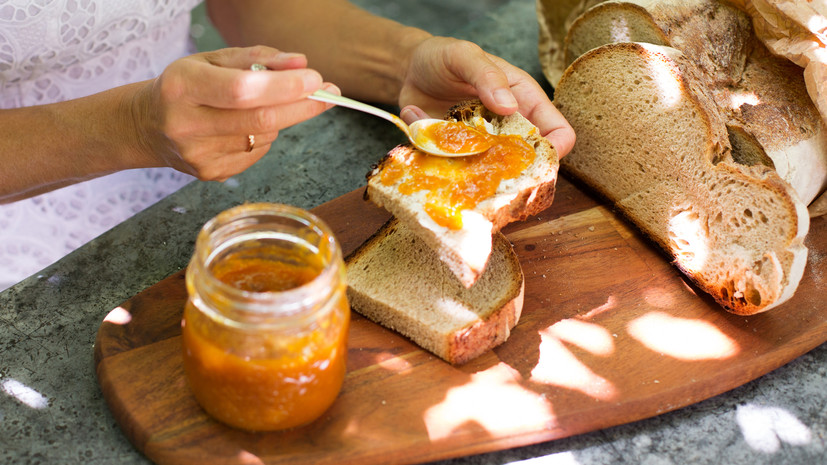“The jam, familiar to many since childhood, is prepared according to a recipe in which berries and fruits are subjected to heat treatment.
However, prolonged thermal exposure destroys some biologically active compounds and vitamins in them, for example, almost completely - ascorbic acid, ”said the specialist.
He also advised not to store jam with stones, such as cherry or apple, for more than a year.
“The bones of these fruit trees contain the substance amygdalin, a natural glycoside, which contains hydrocyanic acid.
This substance spreads over time in microdoses in jam.
In plants, it is responsible for pest control, since it is poisonous, and if it enters the human body, it can lead to severe poisoning, ”the expert warned.
If the jam is fresh, but mold has appeared in the jar, the product should also be thrown away, the interlocutor of RT emphasized.
“Mold spores, formed on the surface of the jam, penetrate deep into and release mycotoxins.
Once in the body, they are able to accumulate and cause allergic reactions, severe poisoning, ”said Brykin.
The doctor also recalled that a lot of sugar is used in the process of making classic jam, usually in a 1:1 ratio.
“People with diabetes, obesity and young children need to limit their intake.
Adults are not recommended to consume more than 100 g per day, children from three years old - a maximum of 40 g, and babies from one to three years old - only one or two teaspoons per day, ”the nutritionist recommended.
According to him, an alternative to traditional jam is a cold cooking method, when berries or fruits are ground with sugar and immediately eaten or frozen and stored in a freezer.
Thus, as the expert explained, all vitamins and nutrients are preserved.
“For those who are not ready to completely abandon the classic taste, there is a so-called intermediate option - five-minute jam.
Up to 70% of useful substances remain in it - vitamins do not have time to completely collapse during short-term heat treatment, ”concluded the interlocutor of RT.
Previously, the doctor Brykin called a safe daily dose of garlic and onions.

